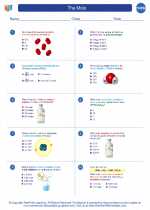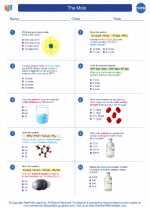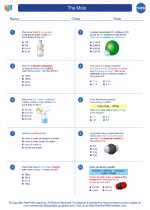Depth in Chemistry
In the field of chemistry, the concept of depth refers to the thorough understanding and insight into the various chemical principles, theories, and applications. Achieving depth in chemistry involves a comprehensive grasp of fundamental concepts, as well as the ability to apply these concepts to solve complex problems and analyze chemical phenomena.
Study Guide for Attaining Depth in Chemistry:
- Mastering Fundamental Concepts: To attain depth in chemistry, it is crucial to have a solid foundation in essential principles such as atomic structure, chemical bonding, stoichiometry, and chemical reactions. Understanding the periodic table, electron configurations, and molecular geometry is also fundamental.
- Exploring Advanced Topics: Delve into advanced topics such as thermodynamics, chemical kinetics, equilibrium, acid-base chemistry, and electrochemistry. Understanding these concepts and their interrelationships is essential for achieving depth in the subject.
- Problem-Solving Skills: Practice solving a variety of chemical problems, including quantitative and qualitative analysis, as well as theoretical and experimental scenarios. Developing problem-solving skills is crucial for attaining depth in chemistry.
- Laboratory Experience: Engage in laboratory work to gain practical experience and reinforce theoretical concepts. Performing experiments, making observations, and analyzing data contribute to a deeper understanding of chemical principles.
- Critical Thinking and Application: Apply chemical principles to real-world situations and interdisciplinary contexts. Developing critical thinking skills and the ability to apply chemistry to environmental, industrial, and technological challenges is essential for achieving depth in the subject.
- Continual Learning and Exploration: Stay updated with the latest developments in the field of chemistry. Explore interdisciplinary connections with other scientific disciplines and seek opportunities for continual learning and exploration.
By following this study guide and actively engaging with the subject matter, students can work towards attaining depth in the field of chemistry, paving the way for a comprehensive understanding and application of chemical principles.
[Depth] Related Worksheets and Study Guides:
.◂Chemistry Worksheets and Study Guides High School. The Mole
The resources above cover the following skills:
Chemistry II
Reactions
Use mathematical representations to analyze the proportion and quantity of particles in solution.
Equilibrium
Analyze and interpret data to explain the change in concentration of products and reactants, and the stable state achieved under reversible conditions.



